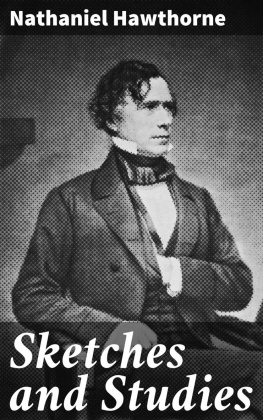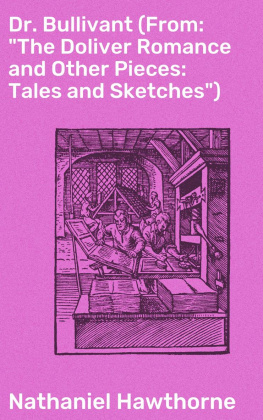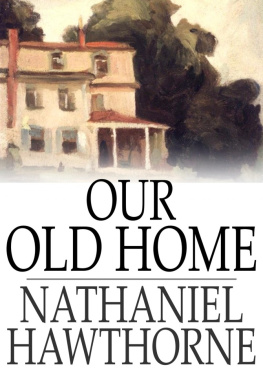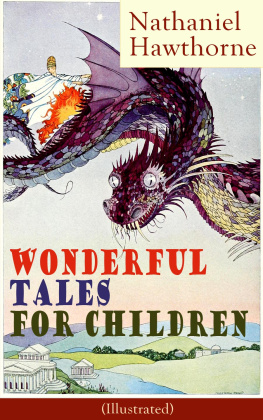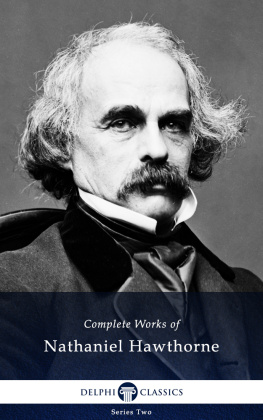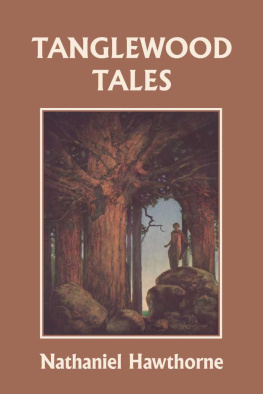Praise for Hawthorne in Concord:
Hawthorne in Concord is an intimate, tender, and unusually attractive account of a great American writer. Vividly rendered, the high-minded and quirky community of Concord is itself a major actor in this superb narrative.
Justin Kaplan
I dont know when I have read a book as satisfying as Hawthorne in Concord. Not since Van Wyck Brookss The Flowering of New England has anyone else so perfectly re-created the world of the New England Renaissance.
David Herbert Donald
McFarland focuses on the people and ideas that shaped the era as it moved from early industrialization to the turmoil of the Civil War. [He] illuminates Hawthornes art and the intellectual ferment originating in that small, bucolic town.
Publishers Weekly
McFarland... enters Hawthornes milieu (his prose even echoes Hawthornes textures, cadences, and grammar) and illuminates it with intelligence and affection.
Booklist (starred review)
In this lyrical account of our first great novelist, Philip McFarland shows how central this reclusive writer was to the cultural and political life of antebellum New England.
Jerome Loving
Enchanting.
Rebecca Pepper Sinkler, American Scholar
[An] admirable book... McFarland... has found a way to bring [Hawthorne] into fresh perspective.
William H. Pritchard, The Washington Times
McFarland manages to capture in his tone the flintiness of the brilliant minds that sparked off each other to ignite Americas first great intellectual fire.
Lucille Stott, The Concord Journal
A novel historical spin... [McFarlands] innovative focus on Hawthornes years in Concord, Massachusetts, enables him to reconsider Hawthornes place in the history of the towns fascinating writers, intellectuals, and reformers. McFarlands important if implicit historical premise is that a biography of Hawthorne must also be a biography of his culture.
Joel Pfister, St. Petersburg Times
Warm and vivid. McFarland provides charming glimpses of Hawthornes life in Concord.
Michael Kenney, The Boston Globe
Also by Philip McFarland
NONFICTION
The Brave Bostonians
Sea Dangers
Sojourners
FICTION
Seasons of Fear
A House Full of Women
Hawthorne in Concord
Philip McFarland

Copyright 2004 by Philip McFarland
All rights reserved. No part of this book may be reproduced in any form or by any electronic or mechanical means, including information storage and retrieval systems, without permission in writing from the publisher, except by a reviewer, who may quote brief passages in a review. Any members of educational institutions wishing to photocopy part or all of the work for classroom use, or publishers who would like to obtain permission to include the work in an anthology, should send their inquiries to Grove/Atlantic, Inc., 841 Broadway, New York, NY 10003.
Published simultaneously in Canada
Printed in the United States of America
FIRST GROVE PRESS PAPERBACK EDITION
Library of Congress Cataloging-in-Publication Data
McFarland, Philip James.
Hawthorne in Concord / Philip McFarland.
p. cm.
eBook ISBN-13: 978-1-5558-4688-6
1. Hawthorne, Nathaniel, 18041864Homes and hauntsMassachusetts
Concord. 2. Novelists, AmericanHomes and hauntsMassachusetts
Concord. 3. Novelists, American19th centuryBiography. 4. Concord
(Mass.)Biography. I. Title.
PS1884.M395 2004
813.3dc22
[B]
2003067661
Grove Press
an imprint of Grove/Atlantic, Inc.
841 Broadway
New York, NY 10003
for
Sarah Alice McFarland Boggs
Thomas Alfred McFarland, Jr.
John Sylvester McFarland
Sally, Tommy, and John
CONTENTS
THE FORTIES
Learning to Be Happy

Nathaniel Hawthorne in 1840, by Charles Osgood (oil on canvas), courtesy Peabody Essex Museum, Salem, Massachusetts.
1
WEDDING IN BOSTON
Both the groom and the bride were well past the bloom of their youth. Nathaniel Hawthorne had reached his late thirties, and Sophia Peabody was already thirty-two. Nor was it that either had been married before, the bridesickly since infancynever having expected to marry at all. As for the groom, others had assumed that he would have found a wife long before a certain summer day in July 1842. Years earlier, a college friend had made a bet to that effect and had done so very reasonably; for not only was the gentleman in the Peabodys parlor this Saturday morning strikingly handsome. He was, as he himself might have put it, endowed as well with the liveliest
Nearly two decades earlier a classmate at Bowdoin, Jonathan Cilley, had made the bet about Hawthornes marrying within a dozen years. In due time Cilley had written his friend jocularly: Bridge informs me that you are about to publish a book, and are coming into repute as a writer very fast. This was in 1836. I am gratified to hear it; but just now it would have pleased me more to have heard that you were about to become the author and father of a legitimate and well-begotten boy than book. What! suffer twelve years to pass away, and no wife, no children, to soothe your care, make you happy, and call you blessed. Why, in that time I have begotten sons and daughters to the number of half a dozen, more or less.
; who cares if I have lost it! If only you and Frank Pierce and Joe Drummer and Sam Boyd and Bridge and Bill Hale were together with me, we would have a regular drunk, as my chum in college used to call it, on that same barrel of wine.
The collegians, once all chums together, were widely scattered now. Indeed, one of their number by Hawthornes wedding morning in 1842and he the writer of this very letterwas already four years dead. What sort of a book have you written, Hath? the doomed Cilley had been led to wonder before bringing his letter to an end.
The book comprised sketches and tales that had appeared anonymously in various newspapers, magazines, and annuals over most of a decade, some of them collected and published finally in 1837, the year before Jonathan Cilley, by then a member of Congress, was murdered in a duel that left his wife and those sons and daughters to the number of half a dozen husbandless, fatherless. Hawthorne would be deeply affected by the news. Meanwhile, the book, Twice-Told Tales, had been published in March 1837, leading to its authors introduction before years end to the Peabody family, neighbors in his hometown of Salem, Massachusetts. A daughter in the family proved the belated choice of the handsome author for the wife whofulfilling Cilleys hopesmight call him blessed and soothe his cares and make him happy.
The choice would have appeared imprudent for such purposes. The bride herself had doubted the wisdom of the union; her health remained too feeble to allow her to contemplate housework, and neither she nor her suitor had the means to set up a proper domestic establishment. Might they not better remain friends, she as his sister, or the two of them no more than spiritual husband and wife? For his part, Hawthorne, though thoroughly in love, had nonetheless delayed for months and months telling his family of his secret engagement to Miss Peabody, who, as the summer of 1842 approached and the date was reset for their wedding, was increasingly tormented with bouts of her sometimes excruciating invalidism.
Next page

